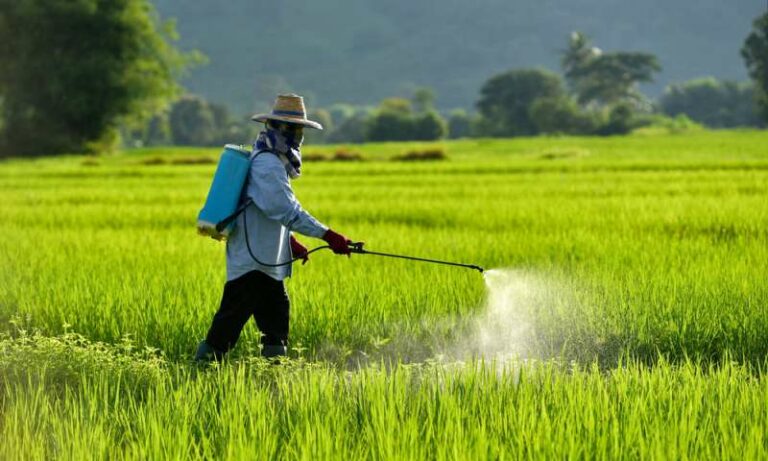EU environmental groups have launched a new initiative to ban all pesticides by 2035.
They have submitted a proposal to the European Commission for a European Citizens’ Initiative (ECI) calling for new legislation to phase out pesticides.
The campaign has been started by a cross-sector alliance of civil society organisations covering the environment, health, farming and beekeeping.
Amongst others, the organisers include the European networks Friends of the Earth Europe and the Pesticide Action Network (PAN) as well as the Munich Environmental Institute, the Aurelia foundation (Germany), Générations Futures (France) and GLOBAL 2000/Friends of the Earth Austria.
The proposal calls on the European Commission to introduce legal proposals to:
- Phase out synthetic pesticides by 2035: Phase out synthetic pesticides in EU agriculture by 80pc by 2030, starting with the most hazardous, to become 100pc free of synthetic pesticides by 2035
- Restore biodiversity: Restore natural ecosystems in agricultural areas so that farming becomes a vector of biodiversity recovery
- Support farmers in the transition: Reform agriculture by prioritising small scale, diverse and sustainable farming, supporting a rapid increase in agroecological and organic practice, and enabling independent farmer-based training and research into pesticide- and GMO-free farming
“We are facing an emergency with nature disappearing at an unprecedented rate, said Adrian Bebb, food and farming campaigner at Friends of the Earth Europe.
“We are launching this campaign to show that the public supports decision makers to take much bolder steps to transform our agriculture, save nature and support sustainable farmers that protect our countryside,” he added.
The initiative comes against a background of a study conducted by the European Food Safety Authority (EFSA) on behalf of the European Union (EU) on food quality which revealed that Cyprus has the highest rate of pesticides residue levels in food.
The report, which was released last month but collected data regarding the year 2017, shows that out of the 353 samples from Cyprus, 5.7% were over the allowed maximum residue level (MRL) legally permitted in foods or animal feeds.
In the previous study, released by the EU last year, Malta had topped the list with 13.5%. However, after successfully clamping down on excess use of pesticides, its rate dropped to 2.4% in 2017, while Cyprus increased its percentage by 0.2%.
The report included EU and European Free Trade Association (EFTA) member states, and covered a wide variety of highly utilized processed and unprocessed food products, such as flour, vegetable oils, fruit and vegetable juices and milk products.
The most alarming problems in Cyprus concern products like carrots, potatoes and cauliflowers, which showed particularly high levels of dieldrin, a pesticide that has not yet been approved by the EU and that has been linked to health problems such as Parkinson’s and breast cancer.















